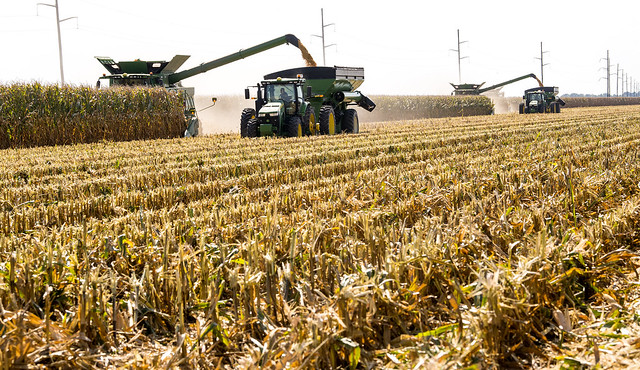Sept. 2, 2021
Farmland preservation through conservation easements to be focus of Sept. 15 webinar
By Will Clark
U of A System Division of Agriculture
Fast facts:
- Webinar to cover Purchase of Agricultural Conservation Easement programs.
- Webinar is Sept. 15 at noon-1 p.m. EDT/11-noon CDT
- Register online at: https://bit.ly/3mdZXlT
(378 words)
(Newsrooms — with art at https://bit.ly/2WNoW5i)
FAYETTEVILLE, Ark. — The nation’s farmland is facing constant and increasing pressure from development — especially in densely populated areas — with farm acreage declining by nearly 10 million acres from 2007-17, according to Census of Agriculture.

However, there are Purchase of Agricultural Conservation Easement, or PACE, programs aimed at preserving the nation’s farmland for continued food and fiber production. These programs will be the subject of a free webinar Sept. 15 hosted by the National Agricultural Law Center.
This webinar will run from noon-1p.m. EDT/11 a.m.-noon CDT. Learn more and register for the webinar here: https://bit.ly/3mdZXlT.
Protecting farmland
PACE programs protect farmland in densely populated areas through the purchase of development rights by a governmental agency, while enabling the farmer to continue owning and farming the land.
One example is the Agricultural Conservation Easement Program, or ACEP, an initiative of the Natural Resources Conservation Service, part of the United States Department of Agriculture. This program has conserved 4.4 million acres of wetlands and agricultural lands with a total value of more than $1 billion.
The webinar will include an explanation of how these programs are established and developed, background on federal programs like ACEP as well as their state-level counterparts and discussion on how programs identify, evaluate and select land for program enrollment.
Public commitment to preservation
The presenter for this webinar is Ross H. Pifer, a Clinical Professor of Law at Penn State Law. He also serves as director of the Center for Agricultural and Shale Law and Director of the Rural Economic Development Clinic. Pifer will provide an overview of these programs and legal issues raised by their implementation.
“Through the operation of these programs over the past quarter-century, state and local governments have demonstrated a public commitment towards the long-term goal of farmland preservation,” Pifer said. “I think this commitment is particularly important in those geographic areas with a rapidly growing population where productive farmland could be at risk without an operational PACE program.”
“PACE programs are a traditionally regional issue that impact more densely-populated areas,” NAL Center Director Harrison Pittman says. “Therefore, as a part of the National Agricultural Law Center’s mission to serve a national audience we are looking forward to Ross sharing his expertise and insight on the topic through the NALC webinar series.”
For more information on the National Agricultural Law Center, visit https://nationalaglawcenter.org/ or follow @Nataglaw on Twitter.
About the National Agricultural Law Center
The National Agricultural Law Center serves as the nation’s leading source of agricultural and food law research and information. The Center works with producers, state and federal policymakers, Congressional staffers, attorneys, land grant universities, and many others to provide objective, nonpartisan agricultural and food law research and information to the nation’s agricultural community.
The Center is a unit of the University of Arkansas System Division of Agriculture and works in close partnership with the USDA Agricultural Research Service, National Agricultural Library.
About the Division of Agriculture
The University of Arkansas System Division of Agriculture’s mission is to strengthen agriculture, communities, and families by connecting trusted research to the adoption of best practices. Through the Agricultural Experiment Station and the Cooperative Extension Service, the Division of Agriculture conducts research and extension work within the nation’s historic land grant education system.
The Division of Agriculture is one of 20 entities within the University of Arkansas System. It has offices in all 75 counties in Arkansas and faculty on five system campuses.
The University of Arkansas System Division of Agriculture is an equal opportunity institution. If you require a reasonable accommodation to participate or need materials in another format, please contact 479-575-4607 as soon as possible. Dial 711 for Arkansas Relay.